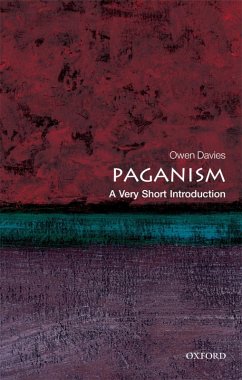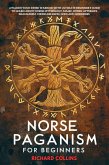'Paganism' is an evocative word that, even today, conjures up deep-seated emotions and prejudices. Until recently, it was primarily a derogatory term used by Christians to describe the non-Christian cultures confronted and vanquished by their Churches. For some it evokes images of sacrifice and barbaric behaviour, while for others it symbolises a peace-loving, nature-worshipping spiritual relationship with the earth. This Very Short Introduction explores the meaning of paganism - through a chronological overview of the attitudes towards its practices and beliefs - from the ancient world through to the present day. Owen Davies largely looks at paganism through the eyes of the Christian world, and how, over the centuries, notions and representations of its nature were shaped by religious conflict, power struggles, colonialism, and scholarship. Despite the expansion of Christianity and Islam, Pagan cultures continue to exist around the world, whilst in the West new formations of paganism constitute one of the fastest-growing religions. Focussing on paganism in Europe, but exploring the nature of paganism globally, Davies looks at how Europeans discovered new cultures through colonial expansion, missionary work, and anthropological study. Contemporary social paganism can be a liberating and social force, and the idea of a global Pagan theology is now on the religious map. ABOUT THE SERIES: The Very Short Introductions series from Oxford University Press contains hundreds of titles in almost every subject area. These pocket-sized books are the perfect way to get ahead in a new subject quickly. Our expert authors combine facts, analysis, perspective, new ideas, and enthusiasm to make interesting and challenging topics highly readable.
Dieser Download kann aus rechtlichen Gründen nur mit Rechnungsadresse in A, B, BG, CY, CZ, D, DK, EW, E, FIN, F, GR, HR, H, IRL, I, LT, L, LR, M, NL, PL, P, R, S, SLO, SK ausgeliefert werden.









